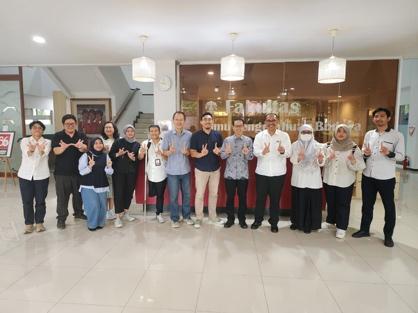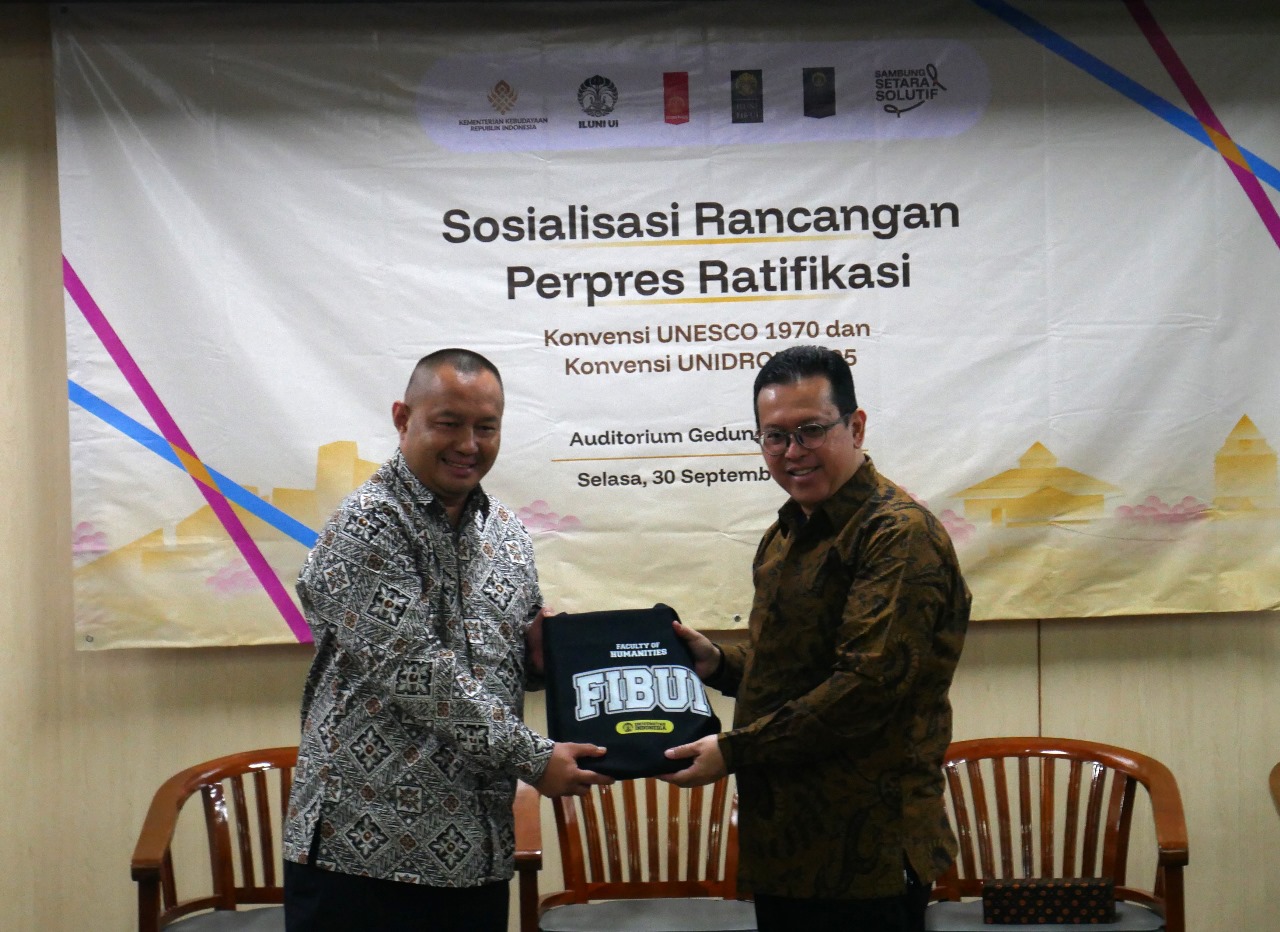The Faculty of Humanities of Universitas Indonesia (FIB UI) emphasized the strategic role of the humanities in addressing Southeast Asia’s contemporary social challenges through its participation in The First Southeast Asian Humanities Dean Summit (SEA-HUDS) 2025 held at Chulalongkorn University, Thailand, on July 25, 2025. At this prestigious forum, the Dean of FIB UI, Dr. Bondan Kanumoyoso, delivered a presentation entitled “The Humanities and Public Engagement in Indonesia: Responding to Southeast Asia’s Contemporary Challenges.”
The presentation highlighted how FIB UI is actively developing a society-oriented approach to the humanities, making public engagement a central part of academic practice. Amid social transformation and technological disruption occurring in Indonesia and the Southeast Asian region, FIB UI offers four main approaches that demonstrate the relevance and real impact of the humanities in public life.
First, in the realm of public discourse and media, FIB UI established a digital storytelling lab to encourage students to package research results into educational content in the form of videos, podcasts, and visual campaigns that are easily accessible to the public. Projects such as the documentation of the heritage of the Betawi and Chinese communities in Jakarta show how academic knowledge can shape a more inclusive and reflective public narrative.
Second, FIB UI practices participatory research that involves communities as active partners, not just objects of study. Examples include collaboration with communities in South Sulawesi to re-document the Ila Galigo epic, as well as cooperation with the Tugu community in North Jakarta to preserve an endangered language. This approach strengthens the relationship between the university and the community and creates more contextualized and meaningful knowledge.
Third, in the field of cultural preservation, FIB UI develops research clusters that work with local communities and local governments, especially in Eastern Indonesia, to highlight cultural potential while building sustainable preservation models that are relevant to modern life.
Fourth, FIB UI actively bridges the academic world and the realm of public policy through collaborations with ministries, legal institutions, and the health sector. Initiatives such as updating the national history curriculum and improving access to services for local language speakers show that the humanities can contribute directly to equitable and inclusive policies.
In his presentation, Dr. Bondan emphasized that the field of humanities is not a discipline that is isolated from reality, but rather a reflective space capable of shaping the ethical and inclusive questions needed in public decision-making processes. He closed his presentation with a collaborative call to deans and academics in Southeast Asia to build a socially engaged, culturally responsive, and globally connected humanities model.
FIB UI’s participation in this forum also strengthens its position as a faculty of humanities with an international reputation, in line with FIB UI’s achievements this year, which have achieved the highest rankings in various world ranking forums. Through this exposure, FIB UI shows its commitment to making the humanities a transformational force to answer the challenges of the times and build a more civilized future for the region.
SEA-HUDS 2025 was organized in the spirit of partnership and shared commitment to the humanities values. Discussions in the forum were divided into four main themes: the renewal of humanities curricula in Southeast Asia, the promotion of regional research and collaboration agendas, the role of humanities in public engagement, and the future of humanities in the era of artificial intelligence. Through this forum, participants sought to build a framework for long-term cooperation among institutions in the region and reaffirm the importance of the humanities as a pillar of regional integration and sustainable development. The forum was the first gathering of deans and academic leaders from leading universities in Southeast Asia to exchange ideas and design future collaborations in the humanities. (Trans-RMRW)




